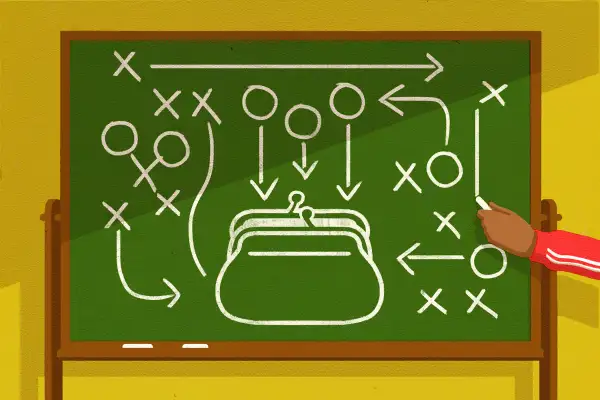Make These 6 Money Moves in December to Maximize Your 2020 Tax Benefits

December is flying by in a flurry of last-minute presents, cold snaps and virtual holiday parties. But don't get so caught up that you forget your finances. As the calendar year ends, time is running out for you to maximize your 2020 tax benefits.
Dec. 31 is a major deadline, especially if you're planning to itemize your tax return when you file in 2021. (Thanks to the Tax Cuts and Jobs Act, in recent years some 90% of people have taken the standard deduction, so your mileage may vary.)
Here are six things you might want to pay now so you can benefit later.
529 contributions
Dozens of states offer tax benefits to people who contribute to 529 college savings plans, and many have a Dec. 31 deadline for those contributions.
In Alabama, for example, people who give to CollegeCounts plans can deduct up to $5,000 (or $10,000 if they're married) — but the transaction has to happen on or before the last day of the year. Its website specifically says that if you're snail-mailing a check, it needs to be postmarked by New Year's Eve. Illinois gets even more detailed, writing that you have until 11:59 p.m. CT on Dec. 31 to make a contribution online.
Donations to charity
The CARES Act created a $300 above-the-line deduction even for those who don't itemize their taxes. But if you do, Colleen Carcone, director of wealth planning strategies at TIAA, says you should take advantage of the tweaked charitable cash contribution limit for 2020.
Usually, the deduction for donations is capped at 60% of your adjusted gross income. This year, you can deduct up to 100%.
"You could, conceivably, write a check to your favorite organization and offset all of your income," she says. "And if you wrote more of a check, the charitable deduction would carry forward to the next year."
Your mortgage
Couples filing jointly can deduct the interest paid on qualified residence loans of up to $1 million, depending on when they were secured. (If you file separately, you can deduct interest on as much as $500,000 of the indebtedness.) You can maximize the 2020 tax benefit by making an extra mortgage payment before December ends.
Carcone recommends calling your lender before you actually send over the money. Otherwise, the firm may use the extra payment to offset your principal, defeating the purpose.
Business expenses
The American Institute of Certified Public Accountants suggests people with home businesses and side hustles look at their finances now so they know what to expect next year. Also, if there are any big purchases you've been considering, you might want to pull the trigger now.
"By paying for qualified business expenses before the calendar flips to 2021, you will lower your overall 2020 taxable income," CPA Brooke Salvini said in an AICPA news release.
Medical bills
You can deduct certain medical expenses if they exceed 7.5% of your adjusted gross income.
This category is pretty broad — eligible expenses include acupuncture, weight loss programs, insulin, fake teeth, guide dogs and nursing home fees. Carcone says if you incur and pay those bills out pocket by Dec. 31, you can deduct them on your 2020 tax return.
Quarterly estimated taxes
Fourth-quarter estimated tax payments are due Jan. 15. But Mike Savage, CEO of 1-800Accountant, says you might want to avoid procrastinating. If you make your state payment this month, you're technically meeting the deadline and getting it in before the end of the year. That means you can deduct the payment on your 2020 federal income tax return.
"By making a 'prepayment' of your state estimated tax payment for the fourth quarter two weeks earlier, you have accelerated the ability to deduct the payment by a year," Savage says.
There's a $10,000 cap on the state and local tax, or SALT, deduction. But you can play with your payment schedule to reach that number if necessary. For example, Carcone says you can also prepay your real estate tax this month.
"If you're in a low or no income tax state or if you have low or no income this year, that would be a great strategy to get those itemized deductions," she adds. "As long as you pay it before Dec. 31, you can deduct that in this year."
More from Money:
Should You Pay Someone to Fix Your Credit Score?
